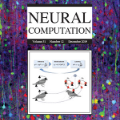In the context of visual perception, the optical signal from a scene is transferred into the electronic domain by detectors in the form of image data, which are then processed for the extraction of visual information. In noisy and weak-signal environments such as thermal imaging for night vision applications, however, the performance of neural computing tasks faces a significant bottleneck due to the inherent degradation of data quality upon noisy detection. Here, we propose a concept of optical signal processing before detection to address this issue. We demonstrate that spatially redistributing optical signals through a properly designed linear transformer can enhance the detection noise resilience of visual perception tasks, as benchmarked with the MNIST classification. Our idea is supported by a quantitative analysis detailing the relationship between signal concentration and noise robustness, as well as its practical implementation in an incoherent imaging system. This compute-first detection scheme can pave the way for advancing infrared machine vision technologies widely used for industrial and defense applications.
翻译:暂无翻译



